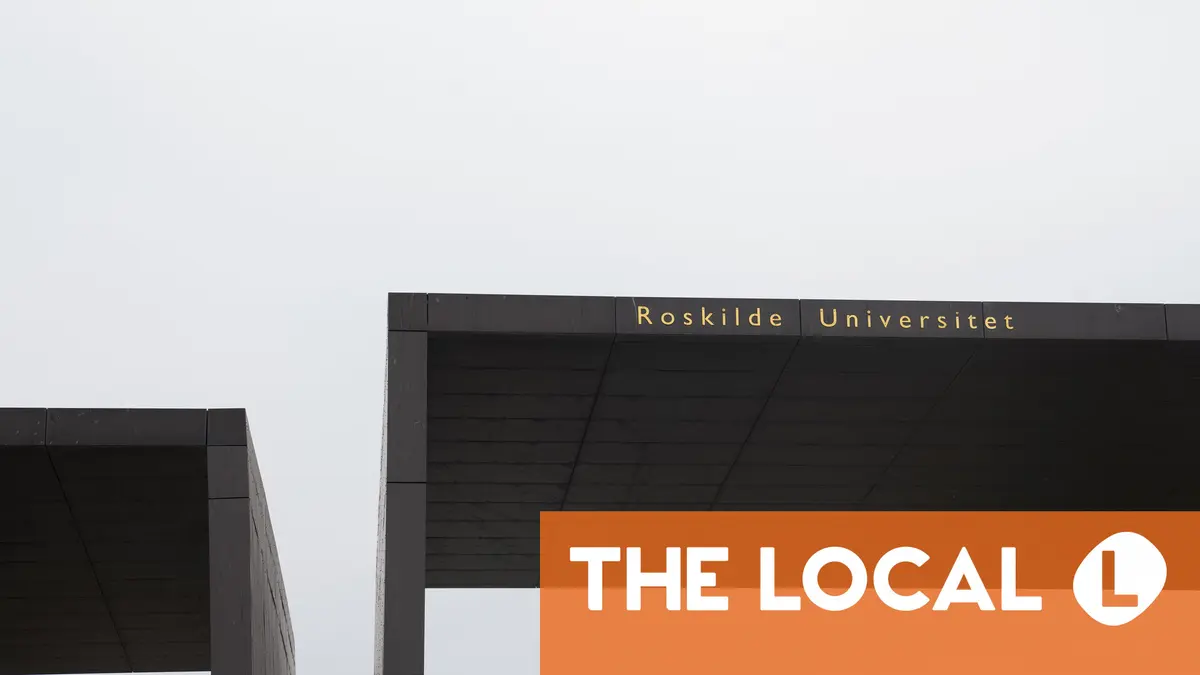Recent years have seen an increase in students from Bangladesh at Danish universities, notably Roskilde. Why have politicians argued this is a problem, and what does the university say? Our weekly column Inside Denmark looks at the issue.
The Minister for Higher Education and Science, Christina Egelund, found herself under political pressure this week after a newspaper reported that international students from outside of the EU had been enrolled in large numbers at a university which was struggling financially.
The minister was last week summoned to a committee in parliament after conservative newspaper Berlingske reported that Roskilde University, RUC, had increased enrolment of international students from non-EU countries, primarily Bangladesh, thereby boosting its revenues.
RUC has since pushed back on the claim, defending its admission policies and denying that fee-paying international students are favoured for financial reasons.
According to Berlingske, an internal RUC document stated the decision would help the university financially while also recognising it could have a negative impact on academic standards.
Egelund’s ministry is reported to have been aware of this via its Agency for Higher Education and Science. That has resulted in a barrage of criticism from the anti-immigration, populist Danish People’s Party (DF).
The immigration spokesperson from DF, Mikkel Bjørn, told Berlingske that Egelund should resign.
“She can’t have been in that role and seen this happen with her own eyes while the government tries to sell the notion it pursues responsible policies on immigration,” he said.
Advertisement
Egelund herself has said that rules for enrolment of non-EU international students will be tightened from 2026.
She even went as far as to say that international students “being able to come to Denmark and bring your spouse and children” is a “parametre” which “must be looked at”, according to news wire Ritzau.
Students from outside the EU are required to cover the cost of considerable application, visa and tuition fees to attend Danish universities.
Controversy around the issue stems not just from the report that the admissions policy may have been motivated by RUC’s funding needs, but also from claims the students may have attained the study visas with the intention of accessing the labour market, rather than education programmes.
EXPLAINED: Can you work on a Danish study permit?
It’s not the first time Berlingske has reported on the matter, with the newspaper writing in July that RUC’s intake of students from Bangladesh in particular was up sharply in recent years and comprised one in six of RUC’s newly enrolled graduate students in 2024.
That was up from one in nine in 2020 and gives a total of around 300 new students from the South Asian country last year.
But why shouldn’t RUC be able to enrol as many international students from Bangladesh as it wants, provided they meet admission criteria?
Furthermore, why shouldn’t they work part-time while pursuing their studies in Denmark, provided they do so within the limits set out by their study visas?
Egelund has claimed that some students from Bangladesh had misused their student visas to gain access to the labour market.
Advertisement
In a committee hearing at parliament earlier this month, she said that “it turns out that many of the students who have come here from Bangladesh in recent years do not have the prerequisites needed to study at a higher education institution here.”
“A picture is emerging that the real intention of taking up residence in Denmark is not primarily to study, but to work, and that is not acceptable.
“We cannot accept that academic regulations are misused as a back door to the labour market,” she said.
She also said that some cases had been identified of fraudulent diplomas being used in applications, but did not specify how many.
These comments should be placed in the context of the consultation itself, which took place on September 2nd.
Egelund was summoned by the Education and Research Committee, which is led by Bjørn and Liberal Alliance’s Sandra Elisabeth Skalvig.
The former characterised the issue as “a massive influx of students as well as spouses and children from the predominantly Muslim country of Bangladesh” and accused Bangladeshi students of “exploiting” the student visa system.
RUC responded to the increasing debate on the matter on Tuesday this week, publishing a statement on its website.
“Recently there has been debate about the admission of foreign fee-paying students from Bangladesh at Danish universities – and especially at RUC,” it wrote.
The university said it does not specifically market itself in Bangladesh, and that it excluded Bangladesh from its listings on the international Studyportals platform in 2022 after observing a sharp increase in applications.
It also said that it had set in measures to limit the number of international students coming from the same country, because “large admissions from a single country can create challenges, both in terms of academic standards and language skills.”
Advertisement
In the statement, RUC said it had itself identified 21 fraudulent applications and rejected them, an apparent rebuttal of Egelund’s comment that the applications had gone through.
The university also pushed back against connections that have been made between its admissions and revenue needs.
“International fee-paying students make up only a limited share of Roskilde University’s overall finances,” it said.
Revenues from fee-paying international students accounted for one and three percent of RUC’s total economy in 2023 and 2024 respectively, it noted.
“It is therefore incorrect to suggest that the university has deliberately admitted students from certain countries to secure its finances,” it wrote.
RUC’s priority is “to attract talented and motivated international students who can contribute to Danish society with relevant skills and well-educated labour,” it concluded.
